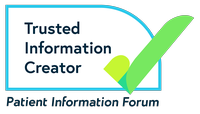Listen to this information
Audio chapters
+
-
00:00-00:23 - Intro
00:24-01:23 - When can I start travelling again?
01:24-03:07 - Will I need travel vaccines?
03:08-05:14 - Can I get travel insurance?
05:15-end - Tips for travelling abroad
When can I start travelling again?
As a general guide, you will probably be safe to travel 6 to 12 months after your stem cell transplant. However, it will depend on how well your own recovery is going, so it’s best to check with your medical team.
That said, it also depends on what you want to do – a few relaxing days on the beach in Spain is a very different holiday to backpacking across Asia. You might also find it easier to go on a few shorter trips or city breaks first, before booking a longer holiday.
Before travelling to any country, you should consider the risks and work out the precautions you might need to take. Your medical team or GP can also give you up-to-date information and specific advice.

You're walking that tightrope between, I want to be adventurous and do things, but I also want to keep myself safe.
Darren, who had a stem cell transplant to treat peripheral T-cell lymphoma
Will I need travel vaccines?
In certain parts of the world, travellers risk picking up illnesses that we don’t normally find in the UK. Depending on where you’re going, you might need vaccines to protect you when travelling to parts of Africa, South America and Asia.
Travel vaccines can take a few months to start working properly, so make sure to check the timings with your team in advance. If not, you may have to delay your travel plans until it’s safe for you to travel.
For general travel and vaccine advice for every country in the world, you can speak to your GP, or visit fitfortravel and Travel Health Pro.
How do travel vaccines work?
Travel vaccines work by tricking your body into thinking it has come into contact with the real virus or bacteria that causes the illness. Your immune system then reacts by:
- starting to produce antibodies
- building up your immunity.
This means if you encounter the virus or bacteria again, it can’t harm you and make you ill.
Vaccines are mostly made from viruses or bacteria that have either been killed or modified to make them safe. However, for vaccines made from a live virus or bacteria, this can cause complications for people who have had a stem cell transplant. Because of your weakened immune system, you won’t be able to get certain live vaccines – so overall this could limit the countries you can safely travel to.
Important:
Having a stem cell transplant means your immune system has been completely replaced. After your transplant, your GP or medical team will also need to arrange for you to get the vaccines you had as a child to protect you from common illnesses.
Can I get travel insurance?
A lot of people find it difficult to find suitable, affordable travel insurance after a cancer diagnosis or other ongoing health concerns.
While it is still possible to get insured, you may find:
- you have to pay more for your cover up front
- you have a larger excess to pay if you claim
- some companies refuse to insure you for travel at all.
It’s always best to be honest and clear about your situation so you know you have suitable cover, just in case something goes wrong. If you are travelling outside the UK and need medical care without insurance, it could cost thousands of pounds.
Tips for finding travel insurance
Although we can’t recommend individual insurance providers, it’s a good idea to research the best deals and make lots of informal enquires. You might also find some of our tips helpful:
Get an insurance broker
Brokers will be able to search for and suggest suitable policies based on your individual needs. Some brokers charge a fee for their service, so check with them before you start. You might also want to check your broker is registered with the British Insurance Brokers’ Association (BIBA).
Check forums for people with cancer
Many people with a cancer diagnosis discuss their insurance experiences on websites like the Macmillan travel insurance forum.
You can also discuss this with other people who have had a stem cell transplant on our Patients and Families Forum.
For more information on travel insurance with a cancer diagnosis, visit the Cancer Research UK website.
Contact your GP
Your GP or someone in your medical team can write a letter or email explaining the details of your medical situation. This often helps insurers understand more and could help you reach an agreement with them.
In the first couple of years after transplant, I was making decisions based on ‘am I likely to get ill?’ and it was really restricting my life. I’m trying to find a balance of not ignoring the risks, but not letting them dominate my life.
Dan, who had a stem cell transplant to treat acute lymphoblastic leukaemia (ALL)
Tips for travelling abroad
Whether you’ve recently had a stem cell transplant, or even if you’re years into recovery, we have some tips and advice for you to consider before travelling abroad:
Travel with all your details
+
-
Always travel with your important documents and written details of your medical situation, in case of an emergency. You should also include information about any medications you take. If you’re travelling with other people, make sure they have all these details too. If possible, copy all this information into the local language.
Fly with your medications
+
-
Ask your medical team to write a letter about your medications if you need to carry extra liquids or lotions in your hand luggage. For all types of medication, it’s best to take it onboard your flight and keep it with you at all times. If your checked luggage gets lost or delayed, you don’t want to be left without your medication.
Protect yourself from the sun
+
-
If you’re going to a hot country, wearing high factor sun cream, sunglasses and avoiding direct sunlight will all help reduce UV damage. People who have had a stem cell transplant have a higher risk of getting skin cancer, so you need to protect yourself.
Follow strict food and drink hygeine
+
-
Only eat food that you are confident has been washed, prepared and cooked hygienically. If you travel to a place where the drinking water might be unclean, stick to sealed bottled water and other drinks. It might be a good idea to ask for drinks without ice, which is often made from tap water. You might also want to avoid some dishes with fresh, raw fruit or vegetables which might have been washed in tap water.
Be wary of insects
+
-
In countries where biting insects are common, using insect repellent will reduce the risk of getting a virus or infection from a bite. If this does happen and you feel concerned, seek medical advice as soon as possible.
See the world, do things that make you happy, don’t waste any time.
Sophie, who had a stem cell transplant to treat acute lymphoblastic leukaemia (ALL)
Further support:
For more travel advice for people who have had a cancer diagnosis, visit the Macmillan website.
You can also download or order their guide to take away with you while travelling: Travel and cancer guide.
